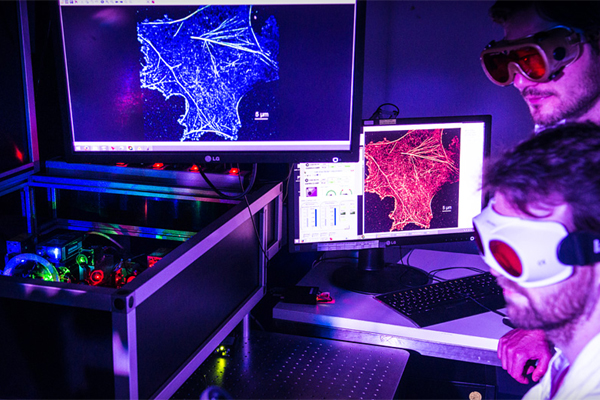



|
Tweet
Pin
It
|
Biophysics is an interdependent science discipline that employs unique methods of physics and physical chemistry to acquire knowledge on the biological systems present in our world. It applies the principles of Physics and Chemistry and the methods of Mathematical Analysis and Computer Modeling to understand how biological systems work. Biophysics explains biological function in terms of the molecular structures and their properties. Biophysics is a bridge between biology and physics. This discipline is concerned with applications of the principles and methods of physical sciences to biological problems.
Biophysics is one of the most fascinating and intellectually challenging fields of scientific study because it deals with humans. Biophysics has a great importance in all our lives today. Biophysics shares a strong bond with other advanced biological fields biochemistry, bioengineering, systems biology, nanotechnology, and agro physics, it can be said that Biological systems is the very root of all our existence. Biophysics incorporate the study of all levels of biological organization, from molecules to ecosystems. The main aspect of biophysics is the use of the ideas and methods of physics and chemistry to study and explain the structures of living organisms and the mechanisms of life processes.
The applications of Biophysics depend on society's needs. One of the first major findings in biophysics was the discovery of the double helix structure of the DNA molecule in 1953. Biophysics helped create powerful vaccines against infectious diseases. Biophysical methods are increasingly used to serve everyday needs, from forensic science to bioremediation. Medical imaging technologies including MRI (Magnetic Resonance Imaging), CAT (Computed Axial Tomography) scans etc. are the invention of Biophysics.
One who study the field of biophysics is known as Biophysicist. They study life at every level, from atoms and molecules to cells, organisms and environments. Biophysicists attempt to explain why our biophysical environment behaves as it does. Biophysicists study how organisms develop, see, hear, think and live. They investigate how the brain processes and stores information, the heart pumps blood, muscles contract, plants use light in photosynthesis, genes are switched on and off and many other questions. Biophysicists usually work with groups or teams of other scientists and professionals with other backgrounds to collaborate on solving common problems. For example, they work along with those in medical and criminology fields to find solutions to various problems they come across.
The major areas of biophysics are the following:
• Molecular biophysics
-is the study of large molecules and particles of comparable size which
play important roles in biology.
• Radiation
biophysics- consists of the study of the response of organisms
to ionizing radiations, such as alpha, beta, gamma and x-rays and to ultraviolet
light.
• Physiological
biophysics- called by some as Classical biophysics, is concerned
with the use of physical mechanisms to explain the behavior and the functioning
of living organisms or parts of living organisms and with the response
of living organisms to physical forces.
• Mathematical
and theoretical biophysics- deals primarily with the attempt
to explain the behavior of living organisms on the basis of mathematics
and physical theory.
• Medical biophysics
- deals with the study that uses physics to describe or effect biological
process largely for the purpose of medical application. The areas of research
combining Physics and physiology include medical imaging such as MRI,
computed tomography and PET (Positron emission tomography); oncology and
cancer diagnosis using radiolabelling and molecular imaging; and vasculature
and circulatory system function.
Tags
science career
,
physics
,
biology
Find it Useful ? Help Others by Sharing Online
Comments and Discussions |
Related
Career Options
|
|||
|
|